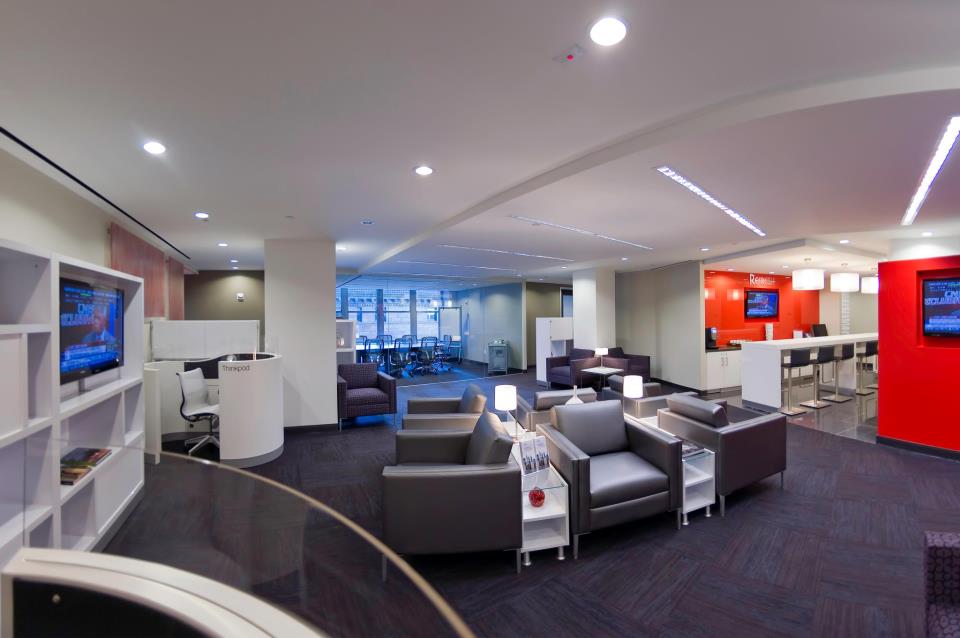Regus released its first quarter trading statement earlier this month, and the results make interesting reading.
In what the company describes as “normally our weakest quarter for cash generation”, it turned in a strong performance for the January – March 2016 period.
Referring to Q1 2016, the report reveals:
- Group revenue increased to £532.5 million.
- Revenue increased 14.5% compared with the same period last year.
- Underlying cash more than doubled year-on-year to £56.4 million.
- Added 42 new locations (0.5 million sq ft of space) globally.
- Regus Group’s global portfolio now stands at 2,799 locations (46 million sq ft) as of 31st March 2016. This is equivalent to 447,548 coworking seats and workstations.
Regus states that this performance has been “driven strongly by the development of the 554 locations added during 2015” along with a number of major operational changes.
Among them, the report refers to changes in its field and management structures, which is at least partly indicative of the company’s shift towards workspace community roles as opposed to traditional business center managers.
In an interview with OfficingToday, former Regus employee Susan Smith explains the company’s reasons for shifting from a Client Service Representative role to one of a Community Manager.
Perhaps a more significant change in the company’s operational structure is a move toward the increased use of partnerships.
The report states, “We are also continuing to transition toward our goal of less capital intensive growth through increased use of partnerships,” and concludes, “we are being increasingly successful in achieving partnership deals.”
One example of this is its partnership with investment and asset manager, M7 Real Estate, which operates on a profit share model rather than a traditional property lease.
The partnership provides M7 with a share of the profit generated by Regus at M7 sites, initially focused on six sites in the UK. The deal opens up the possibility of further profit share sites across mainland Europe.
According to a statement by M7:
“For Regus, the relationship provides an attractive portfolio of M7 locations for the company to further grow its flexible workspace network and client base throughout Europe. And for M7, the deal provides higher potential returns on its investment compared to those achievable at existing rental levels, while at the same time helping the company to absorb vacant space and save empty rates charges.”
Regus is no stranger to strategic alliances, and this is one of many partnerships and structural operational changes that is expected to see Regus further develop its strong start to the year.
Indeed, the company is forging ahead with more new additions to its portfolio and hints at continued growth in its coworking product, stating: “The pipeline includes a number of larger co-working locations in major cities.”
Concluding its Q1 statement, Regus signs off with characteristic optimism tinged with an air of caution:
“Whilst we are vigilant about the overall macroeconomic environment, we remain confident in delivering a full year result in line with management’s expectations given the benefits from our new field and management structure and current trading performance.”
Read the report in full here
Image via Regus Canada

 Dr. Gleb Tsipursky – The Office Whisperer
Dr. Gleb Tsipursky – The Office Whisperer Cat Johnson – Coworking Marketing Maven
Cat Johnson – Coworking Marketing Maven Angela Howard – Culture Expert
Angela Howard – Culture Expert Drew Jones – Design & Innovation
Drew Jones – Design & Innovation Andrea Pirrotti-Dranchak – Competitive Advantage
Andrea Pirrotti-Dranchak – Competitive Advantage Jonathan Price – CRE & Flex Expert
Jonathan Price – CRE & Flex Expert Jeremy Fennema – Tech Innovation Alchemist
Jeremy Fennema – Tech Innovation Alchemist











